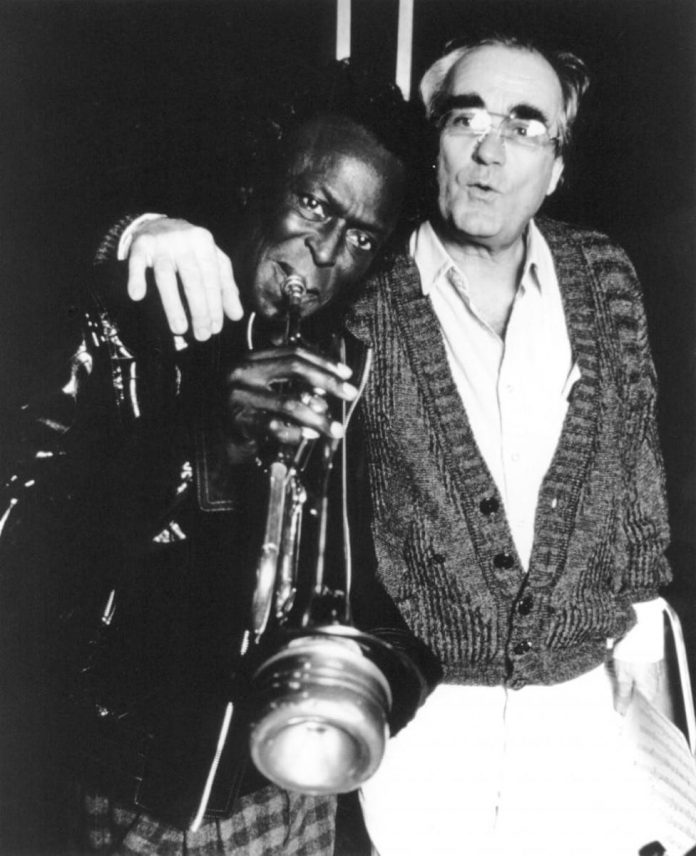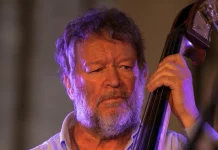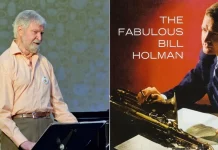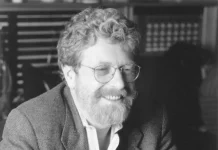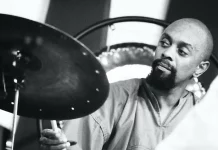Michel Legrand, the French composer, pianist, arranger, singer and conductor, was born in the Paris suburb of Bécon-les-Bruyères, 24 February 1932, into a musical family. He began playing the piano at the age of three after his conductor/composer father Raymond left him, his sister and mother, taking many items but fortunately not the piano. Legrand recalled in 2009: “I sat down and put my two hands on the piano and began playing, trying to re-create a song I had heard on the radio. It became my only friend, my only love and very quickly, my mother realized it was all I could do with my life”.
The precocious pianist entered the Conservatoire de Paris at the age of 10, where his teachers included Nadia Boulanger. He later worked with Edith Piaf, Yves Montand and Maurice Chevalier. A musical polymath, in his subsequent glittering career Legrand became world-famous as a three-time Oscar winner and composer of such romantic film songs as “I Will Wait for You” often in collaboration with the lyricists Alan and Marilyn Bergman including “The Windmills of Your Mind”, “What Are You Doing the Rest of Your Life?” and “You Must Believe in Spring”. His contributions to Jacques Demy’s “pop opera” movie The Umbrellas of Cherbourg (1964) brought him a wide following in the United States where he was already known to jazz devotees as an accomplished pianist.
Legrand became a convert to jazz in 1947 after seeing and hearing Dizzy Gillespie play in Paris. He recalled “I was ecstatic” and felt he had “discovered another world, another planet”. He subsequently recorded with major American and French jazz artists on both sides of the Atlantic, and although comparatively small, his jazz oeuvre is a significant (but largely unappreciated) part of his legacy. The LP Legrand Jazz (1958) is arguably his finest achievement. Leonard Feather called it “unquestionably one of the most successful orchestral jazz albums of all time”. Three different groups of stellar performers – including Miles Davis, Ben Webster, Jerome Richardson, Phil Woods, John Coltrane, Bill Evans and Herbie Mann – conducted by Legrand, played his clever arrangements of such jazz classics as “Wild Man Blues”, “Django”, “A Night in Tunisia” and “Round Midnight”, and received a five-star rating in Down Beat magazine.
An admirer of all the participants in these sessions, Legrand had been nervous about “conducting” the temperamental Miles Davis, but after the first take of “Django” an uncharacteristically humble Miles asked: “Michel, are you happy with my playing?” The two became life-long friends and although they didn’t record or perform together again, collaborated in 1990 for the soundtrack of the Australian film Dingo (in which Davis also acted). He later related: “Miles called me up in Paris and said, ‘The Frog!’ He always called me ‘The Frog’ – ‘Bring your ass to Los Angeles. We’re going to do a film score together! When Miles calls – first plane to Los Angeles!’” They co-wrote two titles – “Dingo Lament” and “Dingo Rock” for the movie, and Legrand reflected “I loved that man. Funny enough, my first jazz album was with him, and his last jazz album was with me”.
A Verve release – Shelly’s Manne-Hole (1968) – is a rare live trio session with Ray Brown and Manne himself, and Legrand semi-scat sings on “My Funny Valentine”. His pianistic skills are particularly evident on “Another Blues” and “Ray’s Riff”. Four of the tunes, including “The Grand Brown Man” and “Los Gatos”, were composed spontaneously. The excellent but lesser-known (and confusingly-titled) album Le Jazz Grand (1979) saw him leading and playing piano with an all-star line-up including Phil Woods, Gerry Mulligan, Ron Carter and John Faddis in a 25-minute performance of a four-part suite entitled “Southern Routes” composed for the movie Les Routes de la Sud, and playing piano on four of his shorter compositions “La Pasionara”, “Malagan [i.e. “Mulligan”] Stew”, “Iberia Nova” and “Basquette”. In 1982 Legrand produced a highly regarded album recorded in New York, After the Rain, playing piano and featuring Joe Wilder, Zoot Sims, Phil Woods, Gene Bertoncini, Ron Carter and Grady Tate on six original compositions. The title track, with lyrics by the Bergmans, was originally recorded by Barbra Streisand. The remainder (including other Bergman collaborations) have minimal scoring and ample space for melodic solos by the instrumentalists.
Another unfairly neglected item in the Legrand canon is the astonishing 1999 album Michel Legrand Big Band, 10 tracks recorded in Paris and performed by the cream of French jazz players including trumpeters Stephane Belmondo and Claude Egea, tenor saxophonist François Theberge, trombonist Denis Leloup and drummer Umberto Pagnini. Legrand plays piano and contributes an ethereal and mock-solemn vocal bridge on an otherwise blistering orchestral version of “I Will Wait For You”. Other titles are “Dingo Rock” and “Dingo Lament”, “You Must Believe in Spring” and “The Windmills of Your Mind”.
Also deserving of mention are the albums Legrand Piano (1959), with Guy Pedersen bass and Gus Wallez drums, and Michel Legrand Plays Richard Rodgers (1962), featuring Paul Gonsalves, Phil Woods, Milt Hinton, Gary Burton and Urbie Green. Michel arranged and conducted this session which was supervised by Billy Byers and Quincy Jones.
A prolific recording artist with 100 albums and around 250 soundtracks to his credit, Legrand was equally deserving of Duke Ellington’s estimate of Ella Fitzgerald, as someone “beyond category”. An affable, articulate and witty man, he received five Grammy Awards, and in 2016 was named a commander in the Légion d’honneur. He told Time Out in London in 2009: “While I was studying in Paris I decided I wanted to touch on and exist within every possible musical discipline. Concerts, records, radio, playing piano, conducting, singing, composing, classical, playing jazz”. That he devoted only part of his remarkable life and talents to jazz is our good fortune.
Michel Jean Legrand died in Paris, 26 January 2019.

